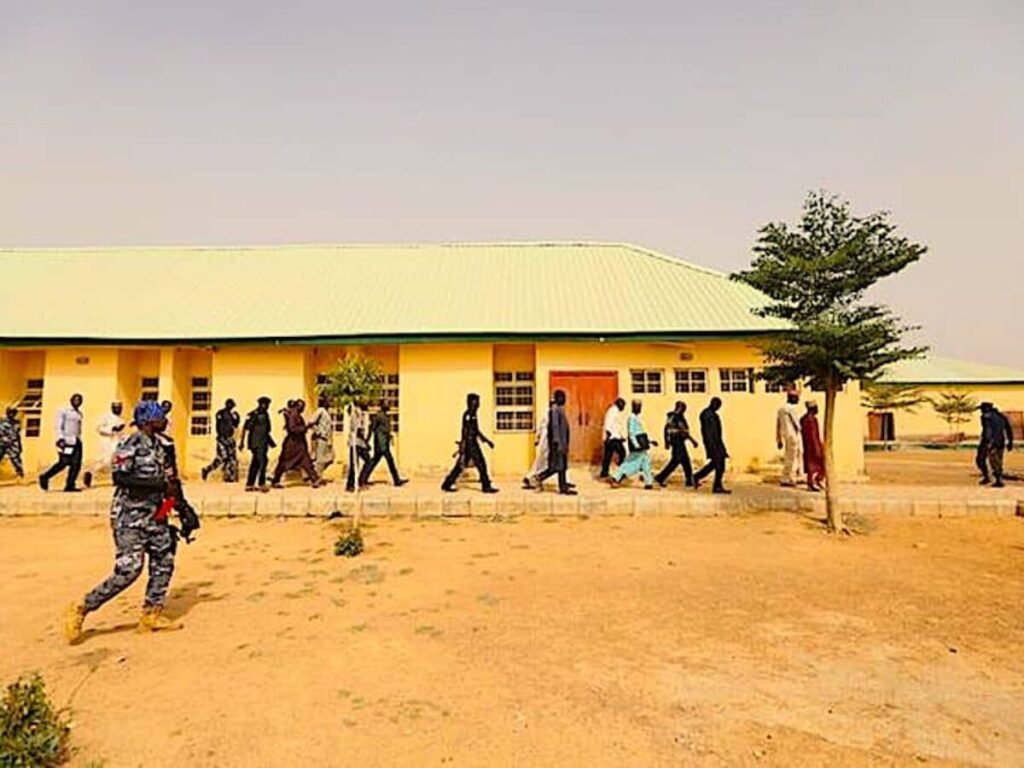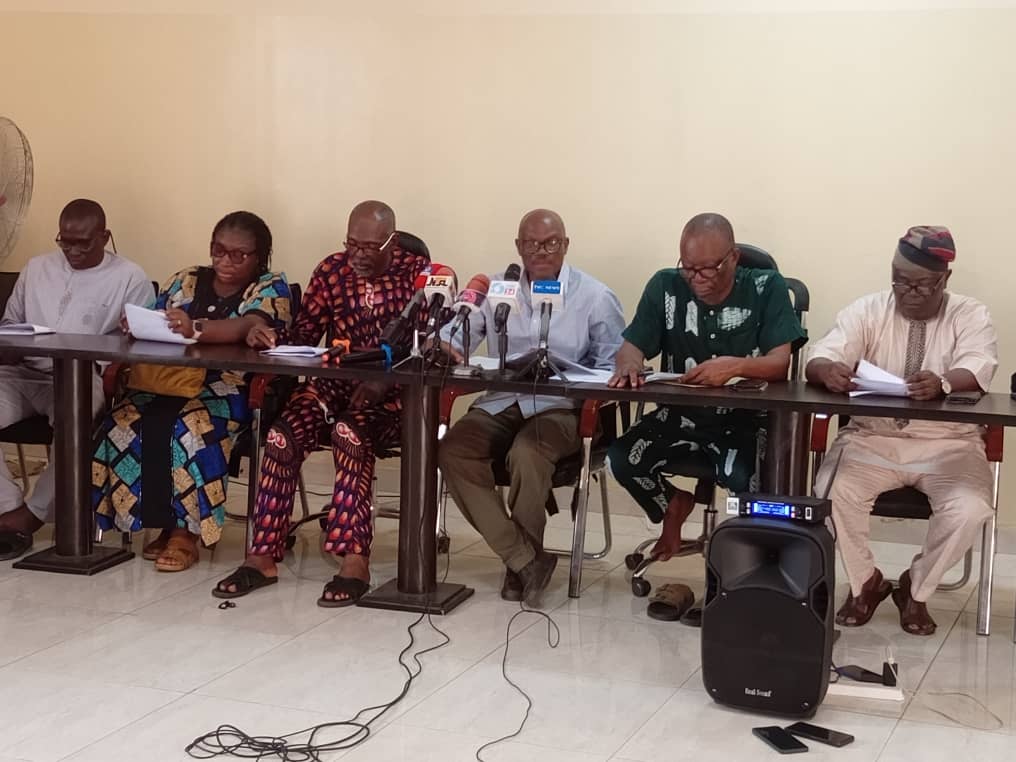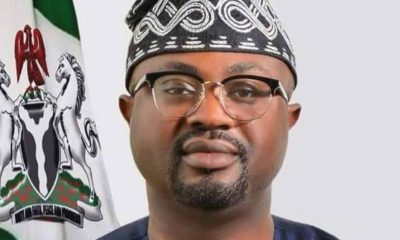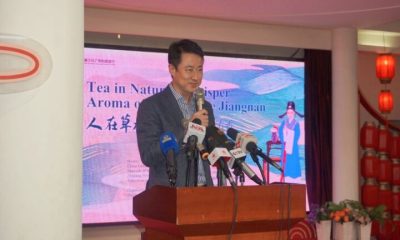Education
Abia, Imo Residents Decry High Fees in Private Schools

Education stakeholders in Abia and Imo have expressed deep concern over the exorbitant fees charged by private schools in the country.
A cross-section of the respondents blamed the phenomenon on the lack of effective monitoring of the schools by the regulatory agencies of government at all levels.
In Abia, the people blamed the commercialisation of education by private schools on ineffective regulatory policy framework and weak monitoring mechanism by agencies of the government.
They spoke in separate interviews, saying that the onus was on government to check the unhealthy phenomenon.
They called on the State Government to evolve an effective monitoring mechanism to
ensure that private schools deliver quality service to their pupils and students.
Mr Osondu Kalu, a father of two, said that effective monitoring of private schools by the relevant authorities would help keep them in check for the purpose of quality education.
Kalu said that issues of unqualified teachers, substandard curricula, and uneven education quality had become a disturbing trend in private schools..
He said that most parents developed preference for private schools because of the failure of the government to upgrade the educational facilities in public schools.
Kalu said that the school fees in highly rated private schools are high and beyond the reach of an average Nigerian parent.
According to him, this unfortunate trend among private schools with exorbitant fees ought to be addressed by the government.
Kalu, therefore, called for effective monitoring of the private schools by the relevant authorities to ensure that the standard for quality education was maintained.
A civil servant, Mrs Dorine Ahamefule, said that some private schools were set up with the primary objective of making money rather than imparting knowledge to young minds.
Ahamefule said that the unusual focus on money instead of imparting knowledge had become a serious challenge, especially given their inability to hire qualified teachers or pay well.
She said that parents should feel the effect of the high fees they pay on their children’s academic performance.
Ahamefule also said that paying teachers well translates to building a highly motivated teachers staff and better productivity.
“However, this comes with a downside, where the fees do not always correlate with the quality of education delivered, especially when schools employ unqualified teachers.
“This practice can lead to substandard education, undermining the value parents expect from their investment.
“The employment of unqualified teachers is often a cost-saving measure, which can compromise the educational quality and outcomes.
“This scenario raises concerns about the commercialisation of education, where profit sometimes outweighs educational quality,” she said.
A disability advocate, Mr Ikenna Ebiri, urged parents and guardians not to equate high fees with high quality, saying that some affordable schools might offer quality education.
Ebiri said that in spite of the high fees, not all private schools invest adequately in infrastructure or human resources, leading to disparity in the quality of education.
He said that with the proliferation of private schools, maintaining a competitive edge, while ensuring affordability and quality, is challenging.
Ebiri, therefore, called for enhanced regulatory framework to ensure all schools meet a minimum standard in teacher qualifications, facilities, and curriculum.
He called on the government to make education less elitist, through scholarships, waivers to private schools and remodelling of public school system.
Some parents and education experts also urged the Federal and State Governments to support private schools in order to lessen the financial burden they transfer to parents.
They further called on the government to introduce free education in public schools.
They urged the government to make public schools more attractive in order to discourage parents and guardians from patronising substandard and expensive private schools.
The Chairman of Parent-Teacher Association, Holy Rosary Secondary School, Umuahia, Mr Edward Okoro, said the high operational costs contribute to exorbitant fees charged by private schools.
Okoro said that most private schools with population between 50 and 100 students might not be able to cover their expenses in running the school, including payment of teachers’ salaries.
“Government has a lot to do and one of them is to make education free in primary and secondary schools.
“If the public schools are renovated and equipped with qualified teachers, many parents will begin to patronise them, instead of taking their children and wards to private schools.
“And when that is done, the exorbitant fees by private schools will no longer be there, which might cause some of them to close down,” he said.
Also, Prof. Rose Uzoka, the Dean, College of Education, Michael Okpara University of Agriculture, Umudike, urged the government to subsidise private schools to check high charges.
Uzoka said that most of the private schools “pay tangible amount” of taxes to the government and needed to recover the money through school fees and other charges.
She said : “I doubt if there is any private secondary school in the South-East that charges as much as N3 million or N4 million as school fees.
“The government is not doing enough to help these private schools, but that should not be an excuse to exploit parents in the name of school fees.
“There are different ways that the government can support the private schools to lessen the burden of exorbitant school fees”.
A parent, Mr Kalu Ukpai, lamented that some of the private schools charge exorbitant fees but employ unqualified teachers, whom they pay poor salaries.
Ukpai said that the issue of high cost of education has become a serious concern, especially now that things are generally tough in the country.
“Many families are finding it extremely difficult to make ends meet.
“How then can they cope with the high school fees, especially for those with many children?
“But, I am happy for what Gov. Alex Otti is doing in the education sector now in Abia, especially with the remodeling of public schools and his plans to introduce free basic education next year.
“The governor’s move will bring back the lost glory in public schools and pull people out from the private schools,” he said.
In Imo, some private secondary school teachers lamented that they were being underpaid, saying that their salaries and other emoluments were not commensurate with their output and school fees paid by the students.
Mrs Oluchukwu Ferdinand, who holds a Higher National Diploma in Education and teaches in a private secondary school, said that her employer always referred to the HND/BSc dichotomy as his reason for underpaying his teaching staff.
Ferdinand said that the attitude explained why the proprietor employed only HND and Ordinary National Diploma holders, adding that this was affecting the teachers’ approach to their duties.
Another teacher, Miss Uchechi Okoro, said that the lack of government measures to checkmate the activities of private schools was also a factor.
Okoro said: “I’m one of the 15 teachers in the secondary school where I teach, seven are regular staff members, while eight are youth corps members, who get a paltry allowance to augment what they receive from the Federal Government.
“But because nobody checkmates these things, they just keep happening and there is little or nothing the teachers can do about it,“ she said.
She argued that changing corps members annually was affecting the students performance negatively and called on government not to allow inexperienced corps members take over the core duties of teachers as assigned in the curriculum.
A head teacher, Mr George Ojiaku, blamed the low remuneration of teachers in private schools on government’s failure to provide adequate remuneration for teachers in public schools.
Ojiaku said that since government sets the standard for the private sector, “it would be difficult to expect perfection” from the latter.
The Proprietress of Sound Foundation Academy, Emekuku, Owerri, Mrs Chinwendu Osuji, said that the location of a school determines the fees charged which, in turn, determines the remuneration of teachers.
Osuji called on government to establish modalities for equitable school fees charged by private schools. (NAN)
Education
Strike Looms as ASUU Accuses FG of Endless Agreement Negotiations, Others

By David Torough, Abuja
The Academic Staff Union of Universities (ASUU) has once again raised the alarm over the Federal Government’s persistent failure to honour past agreements, warning that another nationwide strike may be imminent.
ASUU’s new President, Professor Chris Piwuna, at a press conference in Abuja on Friday criticised the government’s inaction on critical issues affecting Nigerian universities.
Piwuna demanded the immediate implementation of all Memoranda of Understanding (MoUs) and Memoranda of Action (MoAs) signed since 2013.
ASUU emphasised that fixing Nigeria requires fixing its universities, which are plagued by poor funding, stalled agreements and government neglect.
The Union also demanded the release of withheld salaries from the 2022 strike and payment to lecturers on part-time and sabbatical appointments affected by the IPPIS payroll system, while condemning political interference in university administration, unlawful appointments, and the undermining of institutional independence.
It further called for an education summit, proper implementation of past agreements, and a stop to the misuse of TETFund resources. It warned it will not remain passive while its members’ rights are trampled.
ASUU urged the government to resolve all outstanding issues to avoid further disruption. While open to dialogue, the union signaled potential industrial action if demands are ignored, reaffirming its commitment to the struggle for quality education.
“Almost three decades since Nigeria’s return to civilian governance, it is not yet Uhuru. The country is still pathetically trapped in the web of multifaceted political malfeasance graphically sign-posted by prebendal politics, mindless manipulation of electoral processes, brazen nepotism, and deliberate subversion of people’s will at every level of governance.
“The sum total of all these is that transparency and accountability have become rare commodities in the hands of the managers of the Nigerian state. Consequently, the generality of citizenry have become despondent, having lost hope and faith in government and its agencies.
“If given the desired attention, Nigeria’s universities should provide the solution ground to solving its multi-faceted and multi-dimensional problems. ASUU has remained focused in the struggle for improved funding and revitalization of these institutions.
“A starting point to achieve this noble goal is to prevail on government to address all outstanding issues in our previous engagements. This will create a conducive atmosphere for addressing the welfare issues of Nigerian academics for the optimal discharge of their statutory responsibilities as the think-tank of the country and mentors for future leaders in all aspects of national development. ASUU remains open to discussion in this respect.
“However, the Union would not continue to look helpless while the rights of its members are being trampled upon and washed away with reckless abandon.”
ASUU stated that the level of implementation of the 2009 FGN/ASUU Agreement is not encouraging, saying that although a few issues are partially implemented, many remain unaddressed.
These, it said include the conclusion of the renegotiation of the 2009 Agreement based on the Nimi Briggs Committee’s draft agreement of 2021; release of withheld three-and-a-half months’ salaries due to the 2022 strike; release of unpaid salaries for staff on sabbatical, part-time, and adjunct appointments affected by the Integrated Payroll and Personnel Information System (IPPIS); release of outstanding third-party deductions such as check-off dues and cooperative contributions; funding for the revitalization of public universities; payment of Earned Academic Allowances (EAA); concerns over the proliferation of universities by federal and state governments; non-constitution of some universities’ governing councils; and adoption of the University Transparency and Accountability Solution (UTAS) in place of IPPIS.
It noted that the government agreed to mainstream the EAA into salaries with the creation of an irregular allowance as a budget line in the 2026 Budget, after releasing N50 billion for the backlog and budgeting N29 billion for the payment of 2025 Earned Academic Allowances and agreed to release N150 billion as a revitalisation fund within four weeks from April 2025.
“However, we are still waiting for government to fulfil these promises. The Union has also reached an understanding with the Yayale Ahmed-led Committee, following the review of the report of the Nimi Briggs-led FGN-ASUU Renegotiation Committee in December 2024. Again, ASUU members have been left in limbo, waiting for the signing of an agreement five months after.
“Delegates at the UNIBEN National Delegates Conference exhaustively evaluated the government’s disposition in resolving outstanding issues with the Union and expressed regrets that nothing has significantly changed in the last two years.
“The irreducible minimum that can guarantee industrial harmony in the Nigerian University System (NUS) is for government to speedily address all outstanding issues including conclusion of the renegotiation of the 2009 FGN/ASUU Agreement, payment of the withheld three-and-a-half months’ salaries, release of the backlog of promotion arrears, payment of withheld salaries of sabbatical and part-time lecturers on account of not signing into the discredited IPPIS, and addressing the unjust victimization of ASUU leaders and members in some state universities.
“Beyond these, we demand a faithful implementation of all issues arising from our previous Memoranda of Understanding (MoUs) and Memoranda of Action (MoAs) government signed with ASUU since 2013.”
ASUU also called on state governors and visitors to these universities to, without further hesitation, resolve lingering issues and reinstate its members without delay in the interest of justice and industrial peace.
On the erosion of university autonomy, the union expressed deep concern. “ome recent developments in Nigeria’s public universities are of grave concern to our Union. We are discomfited by the ongoing attempts to completely erode the autonomy of public universities by the political class and the bureaucrats.”
community
UTME: JAMB To Hold Additional Mop-up Exam for Absent Candidates

Joint Admissions and Matriculation Board (JAMB) says it will conduct additional mop-up examinations for candidates who missed the 2025 Unified Tertiary Matriculation Examination (UTME).
JAMB Registrar, Prof. Is-haq Oloyede, stated this on Wednesday in Abuja at a meeting with key stakeholders to address the challenges encountered during the 2025 UTME.
Oloyede said that the board would accommodate the estimated 5.
6 per cent of candidates who missed the examination by organising a special mop-up exercise.He said that the board had extended the opportunity to all the affected candidates, regardless of the reasons for their absence.
“Normally, we hold one mop-up nationwide for those with one issue or the other.
“But this time, we are creating a new mop-up. Even those who missed the earlier examination due to absence, we will extend this opportunity to them.
“It is not that we are doing something extraordinary; in class, you make up an examination when students miss it for one reason or the other; we just don’t allow abuse of that.
“So we will allow all the candidates who missed the main examination for any reason to take part in this mop-up,” he said.
Oloyede criticised some public commentators who misunderstood and misrepresented the role of UTME, while clarifying that UTME was a placement test and not an achievement test.
According to him, the purpose of the examination is to rank candidates for available spaces in institutions and not to measure intelligence or overall academic potential.
The registrar further stated that high UTME score was not the sole determinant of admission, adding that combined performance, including post-UTME scores and school assessments, could significantly affect a candidate’s ranking.
While acknowledging the emotional strain experienced while announcing the UTME results, he noted that this was not indicative of an institutional weakness.
He expressed JAMB’s commitment to resolving issues affecting the examination process, even as he rejected comments suggesting that the administrative failure was due to incompetence or ethnic bias.
“I want to say this clearly, particularly because I accepted responsibility, not because I do not know how to do the work.
“I say it for the fourth time that no conspiracy theory is relevant to this case.
“Something happened; like people who have been doing something well for years and something just went wrong. That I should now throw them under the bus? No,” he said.
Oloyede, who frowned at those exploiting difficulties to promote ethnic or conspiracy-driven narratives, urged stakeholders to stop ethnic profiling in the education sector.
According to him, many of the criticisms of JAMB’s operations are rooted in ignorance.
The registrar, however, commended his team’s efforts, while also appreciating the resilience shown by candidates, many of whom, he said, had continued their exams, notwithstanding the various challenges. (NAN)
Education
Using CBT for WAEC Will Adversely Affect Sciences— Ebonyi Reps Member

A Federal Lawmaker from Ebonyi, Chief Chinedu Ogah, has declared that the usage of the Computer Based Technology (CBT) for the West African Examination Council (WAEC) would adversely affect science subjects.
Ogah, who represents Ikwo/ Ezza South Federal Constituency at the House of Representatives, made the declaration on Tuesday while speaking with newsmen on WAEC’s proposed plan to introduce CBT from 2026.
The lawmaker said that the move would affect several scientific applications practically used to access students in WAEC examinations.
“What will happen to several scientific.mixtures, equations, mathematical applications among others practically applied during WAEC examinations?.
“Such measures are evidently not feasible and will adversely affect sciences in our educational curricular.
“Science is practical and the earlier we understand this, the better for all,” he said.
He noted that the glitches recorded during the recent Joint Admission and Matriculation Board (JAMB) examination was unfortunate.
“The registrar should review the activities of its Information Communication Technology (ICT) department.
“It is ridiculous for JAMB to conduct the examination without adequate provisions for the ease of candidates,” he said.
Ogah urged people from the south east zone which the glitch was touted to have targeted, to embrace the home grown technology it was known for.
“We are known for technology and innovation.
“Government of south east states should equip our schools with ICT so that students would be acquainted with its usage, early,” he said. (NAN)




















